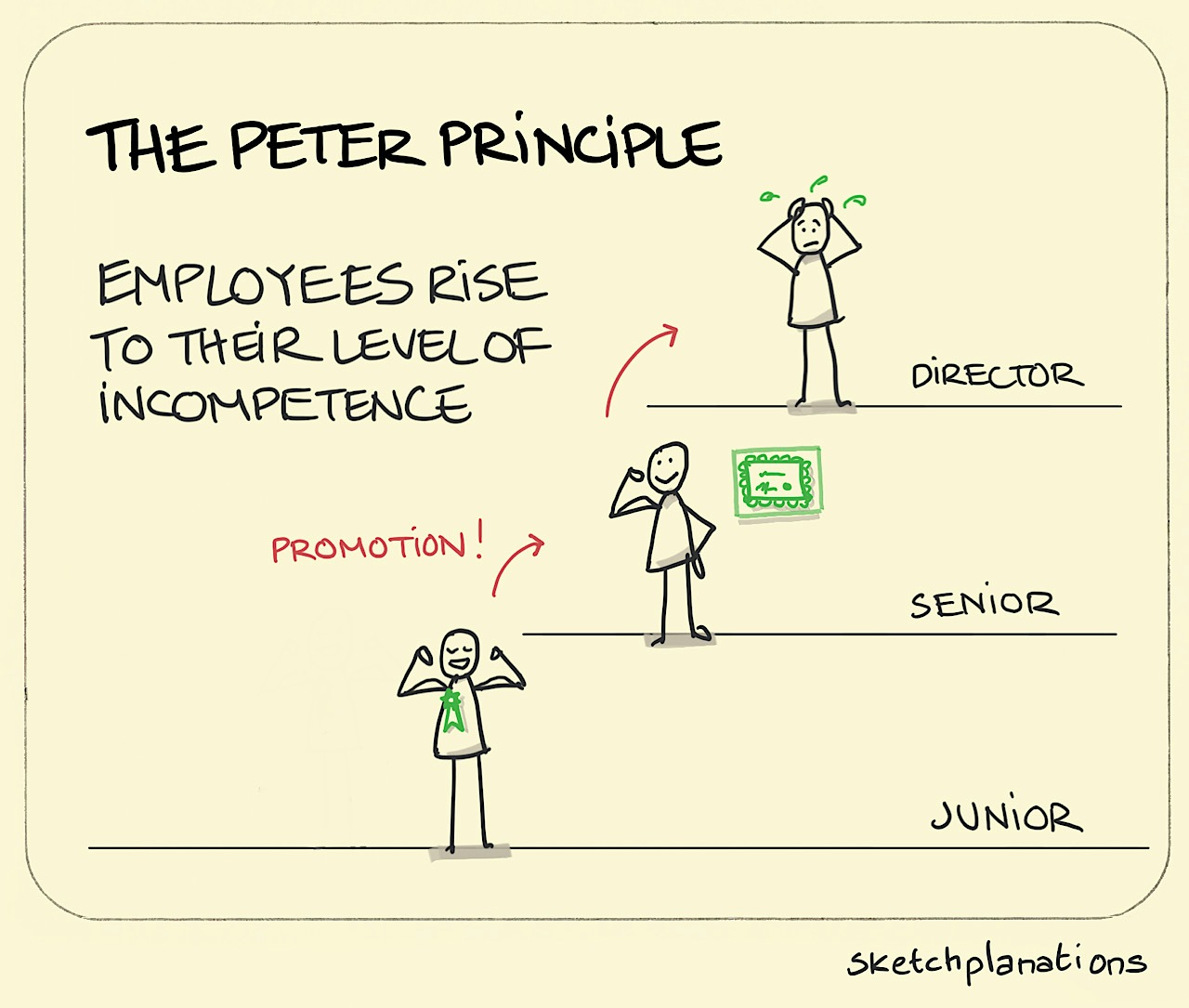The Peter Principle

- Listen
- Copied!
👇 Get new sketches each week
The Peter Principle is that “every employee tends to rise to his level of incompetence.”
The logic of the Peter Principle of management
Someone good at their job is likely to get promoted. However, the promoted position will likely require different skills. If they’re good, they may get promoted again, but if not, they will stay. At some point, each employee in an organisation will be incompetent in their position.
The Peter Principle was an observation originally meant as satire. Laurence Peter later wrote a book called The Peter Principle: Why things always go wrong .
I like this short take on the Peter Principle by Tim Harford .
The Paula Principle
We discussed the Peter Principle in the Sketchplanations podcast. During the podcast, I learned about a counterpoint to the Peter Principle called the Paula Principle.
In his book, The Paula Principle: why women lose out at work ― and what needs to be done about it , Tom Shuller explains that the Paula Principle is "most women work below their level of competence."
Tom explains that the Paula Principle is caused by at least five factors: Discrimination, Caring responsibilities, Self-confidence, Lack of vertical networks, and what Tom calls Positive choice. Read more about the Gender, competence and the Paula Principle in the workplace .
The Generalised Peter Principle
The Peter Principle is a specific case, the case of people, of the Generalised Peter Principle which states that "Anything that works will be used in progressively more challenging situations until it fails." See rule number 1 of indoor games.
Keeping the Peter Principle in mind might help be more tolerant of mistakes from higher-ups—they may be out of their depth.
The Peter Principle is different from the Peter Parker Principle, which is: "With great power comes great responsibility." Though Spider-Man popularized this wise proverb, many precursors of the sentiment exist.

